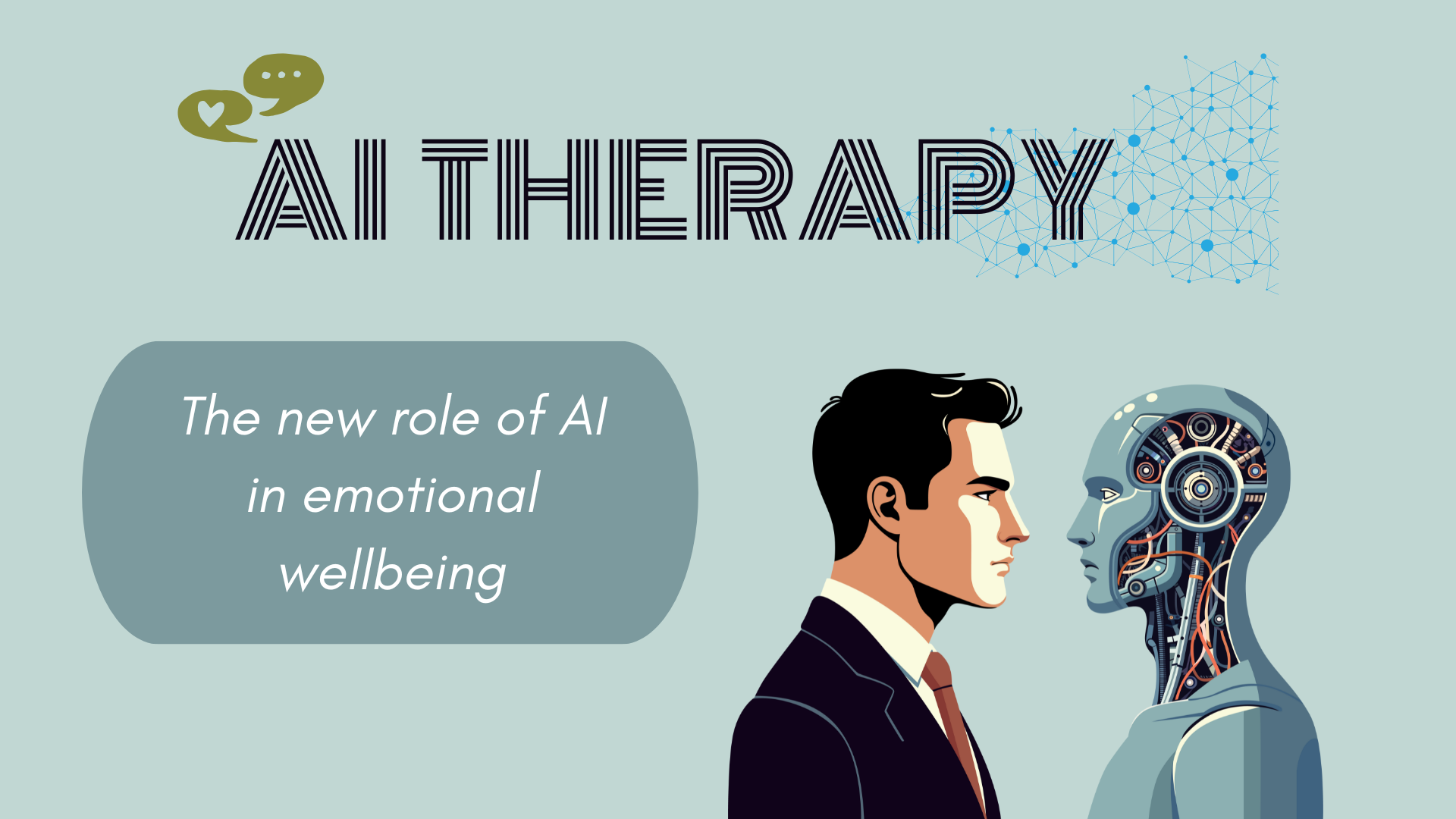AI in mental health support – help or hurdle?
We ask AI for playlists, recipes… and now, even emotional support. Sure, AI can listen.
But can it really understand you? Read my latest post to find out.
Read time: 4 minutes.
As AI becomes a more prominent part of our lives, we’re seeing its presence not only in professional settings but increasingly in our personal lives too. From designing workout routines and meal plans to offering mental health support, AI is becoming a tool many turn to for daily assistance. A growing trend is emerging where people are starting to use AI emotional support tools and therapy apps for help.
Traditionally, those seeking mental health support would look for a therapist they felt safe with – someone they could open up to, be truly seen and heard by, and build a therapeutic relationship within a non-judgmental, secure space.
AI’s Role in Emotional Support
Now, more individuals are turning to AI for that same support.
Part of this shift comes from the immediacy that AI offers. With NHS England waiting lists for mental health services growing longer, people are looking for instant responses – and AI can provide that. While AI can offer valuable grounding techniques and strategies to help regulate emotions in times of distress, there’s still a significant gap when it comes to what trained psychotherapists bring to the table.
The Limits of AI in Therapy
Therapists don’t just help manage symptoms – they help clients explore and understand the roots of anxiety, panic, or trauma. AI may help people cope, but can it guide someone to deeper self-understanding and healing? Can it hold space for trauma in the way a human being can?
Wysa: An AI Mental Health Tool
Wysa – the only AI mental health app currently approved by the NHS, offers an interesting model. It doesn’t claim to replace psychotherapy but instead provides accessible support tools. The app includes features that assess risk and, when necessary, escalate cases to human professionals or emergency services. It offers coping strategies and grounding exercises that can provide early intervention, potentially preventing anxiety from escalating. Importantly, Wysa acknowledges the vital role of therapists.
It’s design allows for a collaborative space where the client, the clinician, and the app can work together, keeping the therapist in the loop while supporting the user.
One of Wysa’s key benefits is that it speeds up the referral process. This can be a critical lifeline for those who are struggling to reach out or are hesitant to seek traditional help. In that sense, AI can be an excellent complement to the therapeutic process, especially in its early stages.
AI vs. Human Connection
With all of that said, AI can’t replicate the deeply human aspects of therapy.
The therapeutic relationship is built on trust, empathy, attunement, and a sense of being truly known by another person. It’s in these moments – being seen, heard, and accepted – that profound healing happens. AI may provide immediate relief, but it cannot replace the emotional resonance of human connection.
As Fred Rogers beautifully put it, “There is something of yourself that you leave at every meeting with another person.”
That kind of mutual presence, that human imprint, is something AI simply cannot offer.
(P.S. This post was originally shared on my LinkedIn – join the conversation here)




Leave a Reply